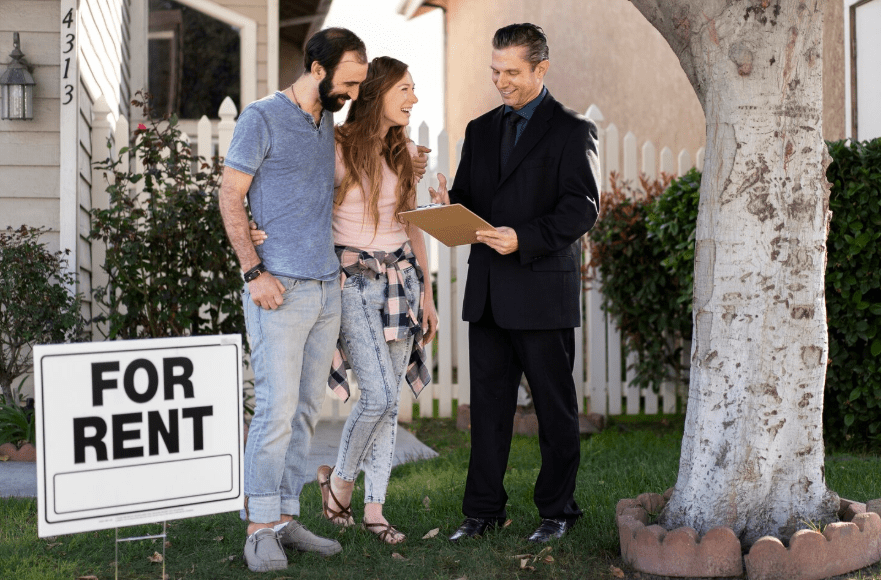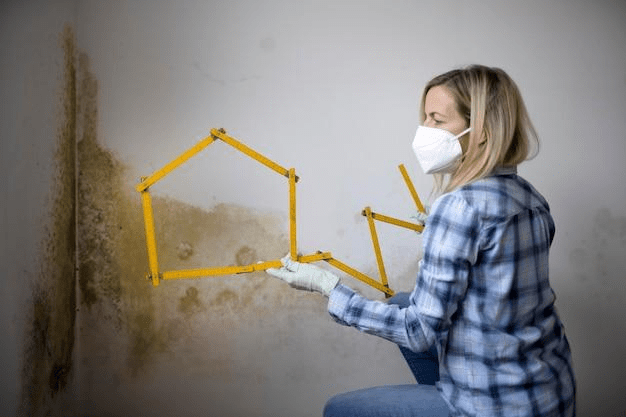Are you renting a home? As a tenant, you need to be aware of common rental health hazards. Sometimes you will not be able to see these hazards to your eyes. However, they can disrupt the good health and well-being of residents during their stay. It is the landlord’s responsibility to provide a safe and habitable space for all tenants. Read the article below with the knowledge you have about common rental home hazards, which can help you escalate them to the landlord and protect your good health.

Importance of Proactive Maintenance and Tenant Awareness
Most health hazards in rental homes develop slowly. For example, a little moisture from a storm can develop into a mold issue after a few months. As a tenant, you often assume that everything is safe. However, the problem could develop in the background. That’s why proactive maintenance is important as much as quick fixes.
In addition to the common health hazards found in rental homes, such as mold and lead paint, pest infestations can pose significant risks to tenants’ well-being. Rodents, cockroaches, and other pests can carry diseases and trigger allergies, making it crucial for renters to address these issues promptly. For those living in North Carolina, seeking professional pest control Raleigh services can help mitigate these risks effectively. By ensuring that your rental property is free from pests, you can create a healthier living environment and prevent potential health problems associated with infestations. Regular inspections and maintenance are key to keeping your home safe and comfortable.
As a tenant, you should take an active role in monitoring your living space. You should report any problems as soon as possible since it is the role of the property manager to handle repairs and inspections. In the meantime, landlords should also conduct regular inspections. It can help prevent small inconveniences from becoming major legal and financial liabilities.
Common Rental Home Health Hazards
Let’s take a look at some of the most common health hazards that can exist in rental homes.
Poor Indoor Air Quality
Air quality is one of the most underestimated risks in rental housing. Most rental homes lack proper ventilation. This is a common issue in older buildings. Without proper airflow, pollutants such as dust and pollen can build up. If your rental home is near a busy road, you will have to deal with additional contaminants such as vehicle exhaust.
Poor air circulation also increases humidity. It creates ideal conditions for mold and dust mites. If you have asthma, allergies, or respiratory conditions, your symptoms will worsen from exposure.
Property managers can help contact the right professionals to improve the air quality by maintaining HVAC systems and changing air filters regularly. They can also clean the ducts for you. As a tenant, you can support this by opening windows on dry days. You should refrain from smoking indoors and minimise indoor pollutants, such as aerosol sprays and scented candles.
Mold and Moisture Buildup
Moisture is one of the most damaging and persistent hazards in a rental home. Moisture buildup can happen due to roof leaks, poor insulation, and dripping pipes. Even high humidity in bathrooms and kitchens can result in it. Mold thrives in damp areas, and once mold starts developing, it can spread fast through walls, ceilings, and carpets. Regularly check areas where mold tends to grow and report them for mold remediation.
Mold exposure is not just a cosmetic issue. It can trigger respiratory problems, skin irritation, and headaches. Black mold, in particular, is a major health concern that requires immediate attention as it can impact your overall indoor air quality. Tenants sometimes fail to report small leaks or damp patches until the issue has become widespread.
The best defense is prevention. Landlords should inspect plumbing and roofing at least once a year. Tenants should use fans when showering, report leaks right away, and avoid blocking ventilation grilles with furniture or curtains. If mold growth is already visible, professional remediation may be required to eliminate it entirely.
Pest Infestations
Few situations make a rental home feel unlivable faster than a pest problem. Rodents, cockroaches, ants, or bedbugs often spread quietly before tenants even notice them. Pests are not only unpleasant, but they can also carry bacteria and trigger allergies. Cockroaches, for example, leave behind droppings and particles that worsen asthma symptoms. Bedbugs spread quickly between apartments in multi-family housing, making them especially difficult to control.
Tenants can help prevent infestations by disposing of garbage regularly, avoiding food left out overnight, and sealing pantry goods. However, the responsibility for serious treatment usually lies with the property owner. Landlords must arrange for professional pest control services when infestations become more than tenants can handle. Prompt treatment protects both the building and the health of the people living inside.
In addition to these common health hazards, it’s crucial to address pest infestations, which can pose significant risks in rental homes. Pests such as rodents, cockroaches, and bedbugs not only cause structural damage but also carry diseases that can affect the well-being of tenants. For those residing in Indiana, particularly in Kokomo, seeking professional pest control services is essential. Reliable pest control kokomo can help ensure a safe and healthy living environment by effectively managing and preventing infestations. Regular inspections and timely interventions can significantly reduce the health risks associated with pests, making it a vital aspect of maintaining a healthy rental property.
Electrical Hazards
Outdated or poorly maintained electrical systems can pose serious safety risks. Old wiring, overloaded circuits, and damaged outlets are common in older rental homes. In the worst cases, these hazards may cause electrical fires, shocks, or power outages.
Warning signs include frequent tripped breakers, flickering lights, or warm outlets. Tenants should never attempt their own electrical repairs, as this can increase danger and liability. Instead, renters should report concerns immediately.
Property managers have a legal responsibility to maintain electrical systems in a safe condition to ensure the property is habitable. Hiring licensed electricians for inspections and upgrades ensures the property remains compliant with local housing codes. Preventive maintenance also reduces fire risk and extends the life of the building’s infrastructure.
Working with Property Managers for Housing Codes Compliance

Most jurisdictions enforce housing codes to protect the health and safety of tenants. These codes often cover hazards such as:
- Ventilation
- Plumbing
- Mold prevention
- Pest control
- Electrical systems
Understanding these housing codes provides leverage to tenants when requesting repairs. If a landlord ignores health-related concerns, tenants can point to the applicable regulations to strengthen their case. In severe situations, local housing authorities may step in and require inspections.
Open communication between tenants and property managers is critical. Tenants should document hazards with photos and written reports. Property managers, in turn, should schedule regular safety audits and respond promptly to complaints. By working together, both sides avoid disputes and maintain compliance with the law.
If you are a landlord, you need to take these concerns seriously—partner with experienced Northern Virginia property managers to assist in maintaining safe living conditions while complying with housing codes.
Final Words
A rental home shouldn’t just be a place to sleep. It needs to offer a healthy living space for residents. However, hazards such as mold, pests, and poor air quality can disrupt your life. When you spot the presence of these hazards, you should immediately get in touch with your property manager. Then you can get rid of all the hazards to enjoy a healthier life.
